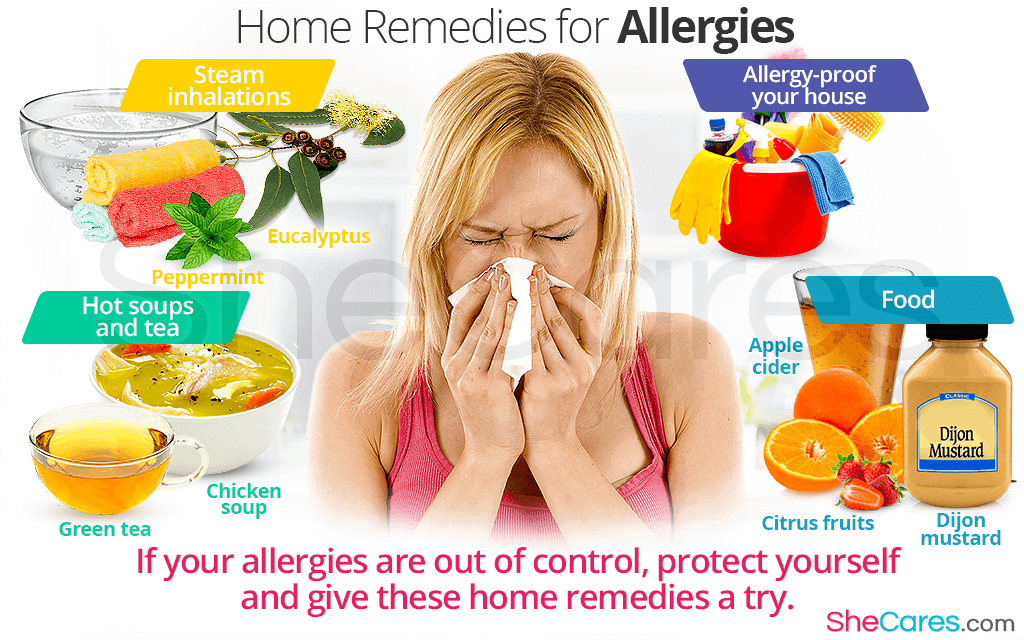Home remedies to treat allergies have been on the radar of many women suffering from allergies. Modern medicine, though constantly progressing, offers limited treatment options, which usually involve taking medications to suppress allergy symptoms or a series of injections to build immunity to allergens. Meanwhile, various alternative practices, which can be done at home, have been shown beneficial in reducing bothersome allergies. Continue reading about the home remedies to treat allergies to see if you might find them helpful as well.
Home Remedies for Allergies
Many of the allergy symptoms resemble those of a cold, so home remedies traditionally used for treating colds are also effective in alleviating allergies. Other practices focus on limiting the exposure to the allergens, responsible for triggering the allergy reactions. The most common home remedies for allergies include:
Steam Inhalations
They have been used for generations and are particularly helpful in opening blocked air passages. An addition of essential oils, such as eucalyptus or peppermint, will give you extra health benefits. Saline sprays or nasal drops can help break up the mucous in the nose and open the airways. When you breathe better, you sleep better.
Hot Soups and Tea
These are great to relieve nasal and sinus congestion. Chicken soup is an old-time remedy, but an aromatic veggie broth has similar decongestant effects. Green tea helps break up the mucus, which will improve your breathing and make your cough more productive.
Food
Vitamin-C-rich citrus fruits, probiotics, and apple cider have been shown to alleviating and preventing allergy symptoms. Also, horseradish, Dijon mustard, and other spicy food can temporarily loosen up the nasal mucous.
Allergy-proof Your House
Allergy-proofing your house will directly limit your contact with them, thus reducing the risk of them triggering an allergic reaction. It generally involves keeping the house clean of mold, especially in the bathroom and kitchen, dust mites, found in carpets and sheets, pollen by keeping the doors and windows shut, and pet's allergens in their dander, urine, and saliva.
Moreover, using HEPA filters to purify the air, dehumidifiers to keep the humidity below 50%, and air-conditioners, instead of fans, is also recommended.
Are Home Remedies the Best Alternative?
With so many different allergens and the varying severity of allergic reactions, it is difficult to state whether home remedies are the best treatment for allergies. Some women swear by them, but for others, especially those also suffering from other diseases, taking medications is the safest way to control the symptoms and prevent serious complications.
In many cases, the most optimal treatment for allergies consists of a combination of taking medications with various home remedies as supportive practices. However, medications might have some adverse effects, so it is always recommended to talk to your doctor before starting any medication treatment to ensure it is safe for you.
Many women suffer from allergies throughout the year, not only within a specific season. They often find great relief in home remedies, because taking anti-histamine medications for a prolonged period of time has been associated with some serious health risks. To lessen the burden of allergies on your life, give these remedies a try to find one that works for you.
